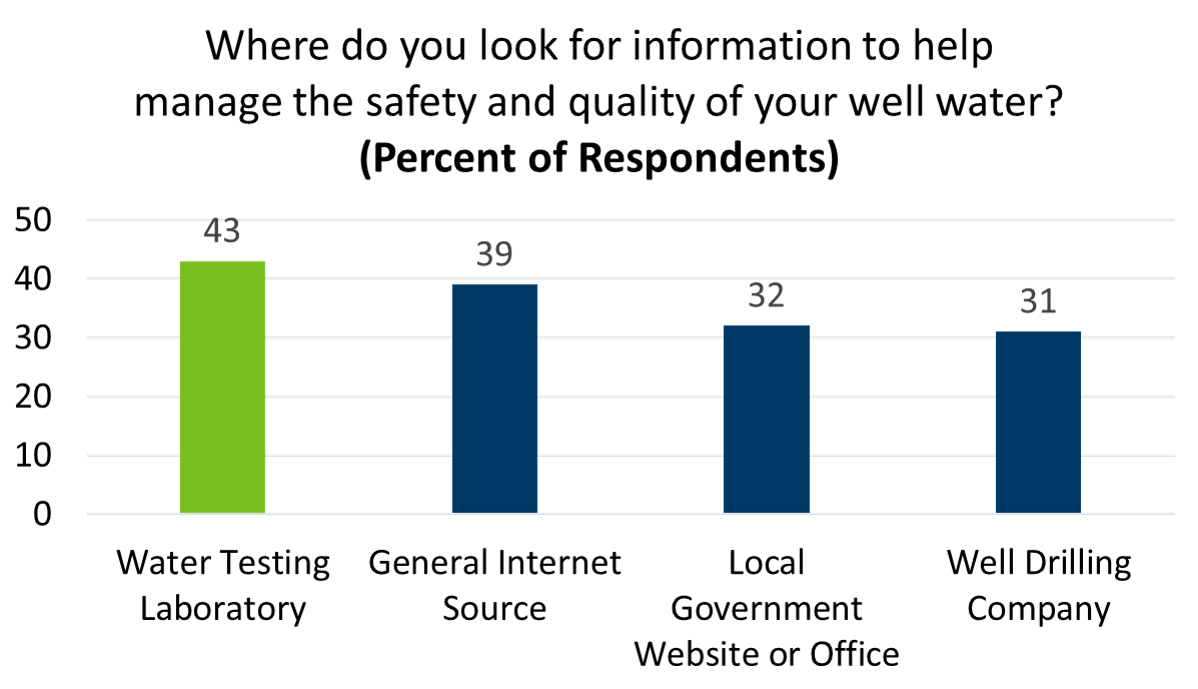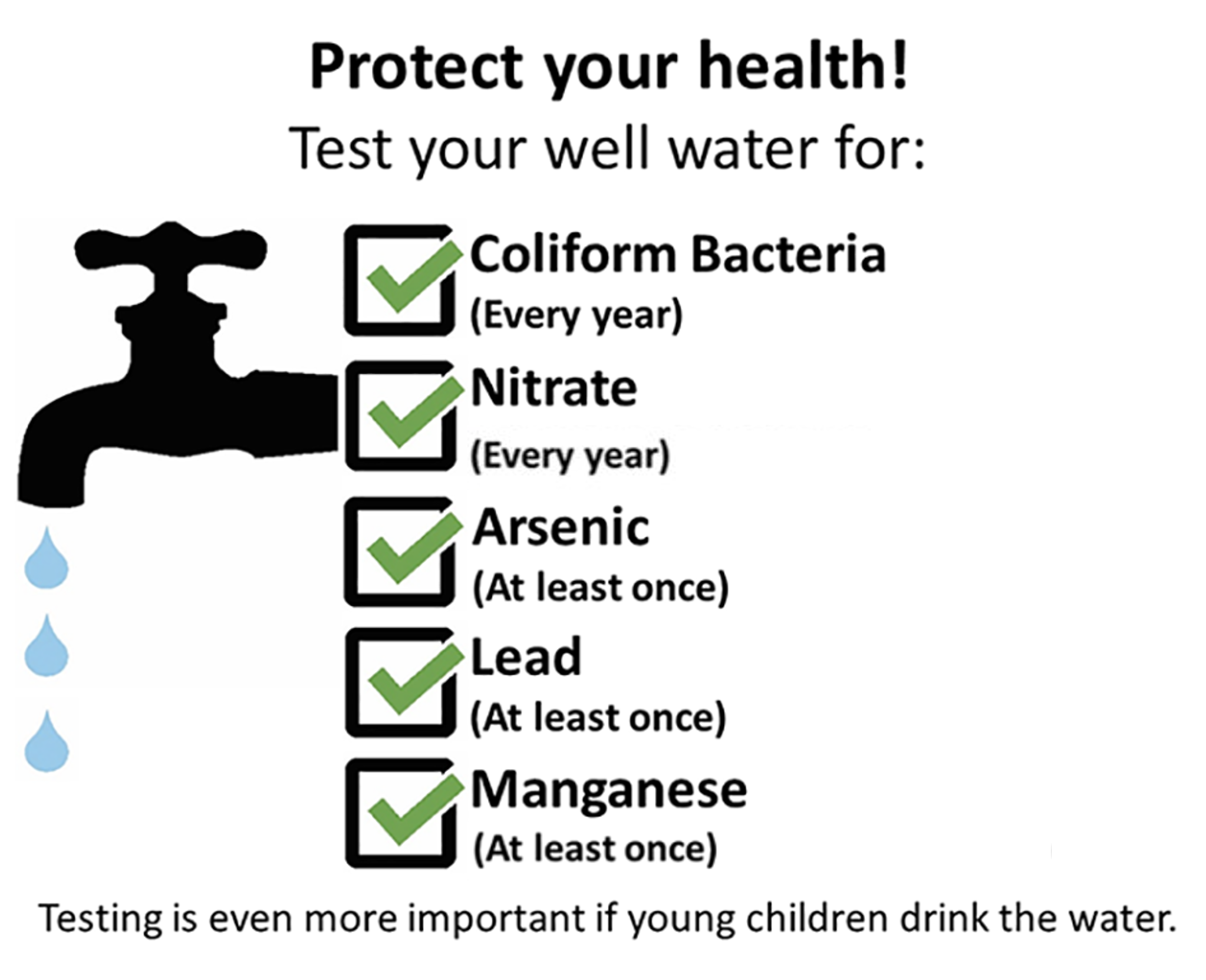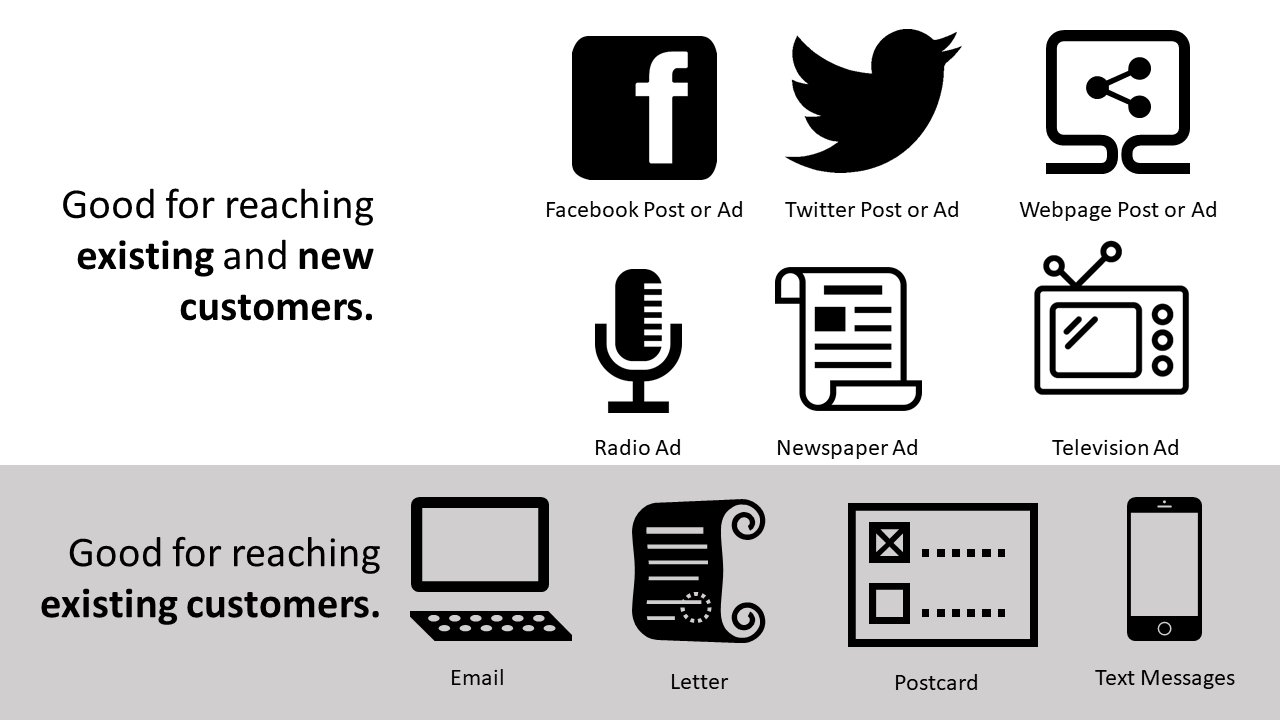Wells and Borings
- Request/Look-up Services
- Wells and Borings Home
- Well Tested? Well Done SE Minnesota
- CEUs
- Construction of Wells and Borings
- Contractors
- Fees
- Laws and Rules
- Licensing
- Minnesota Well Index
- Natural Disasters
- Permits
- Publications
- Resources
- Sealing of Wells and Borings
- Special Construction Areas
- Water Quality and Testing
- Water Information
- Well Disclosure
- Well Partners
Wells Program
Related Topics
- Accredited Laboratories/Well Water Testing
- Clean Water Fund
- Contaminants in Water
- Flooded Wells
- Pesticides
- Water and Health
Environmental Health Division
Accredited Laboratories as Well Partners
About 1.2 million people in Minnesota get their drinking water from a private well, and a Minnesota Department of Health (MDH) study found that less than 20 percent of private well owners test their well water at the frequency MDH recommends. As a laboratory, you can help protect private well users’ health and grow business by promoting regular private well testing.
Access a two-page PDF version of this information at Summary: Increasing Private Well Testing—a Communications Toolkit for Water-testing Laboratories (PDF).
Why should laboratories care about private well testing?
1. Clear communications with private well users improves customer service.

Clear communications can:
- Help protect your customer’s health and
- Build trust with your customer—possibly leading to more business.
2. Laboratories are a trusted source of information.
A 2016 MDH survey found that 43 percent of respondents (all private well owners) look to laboratories for well and water quality information.

Figure 1: This bar chart shows results from the 2016 MDH survey of 798 private well owners. Forty-three percent of respondents said they look to water testing laboratories for information to help manage the safety and quality of their well water. Access the full survey results at Data-Driven Outreach for Private Well Users (PDF).
Tools to help promote private well testing
If you want to expand your communication to private well users, these tools can help:
- Increasing Private Well Testing: A Communications Toolkit for Water Testing Laboratories (PDF).
- Social Media Toolkit (PowerPoint): Ideas for encouraging private well testing through social media.
- Template Postcard Options (MS Word): A template you can use to send well testing reminders to your customers.
What is in the toolkit
The toolkit includes 11 recommendations to strengthen communications with private well users and promote private well testing. Each recommendation includes:
- Why the recommendation is important.
- Ways to implement the recommendation.
- An example of the recommendation in action.
Refer to whichever recommendations seem most helpful for your circumstances. These recommendations do not supersede any federal or state requirements.
Recommendations
Below are brief descriptions of our recommendations. Access Increasing Private Well Testing: A Communications Toolkit for Water Testing Laboratories (PDF) to learn more about each recommendation and ways to implement the recommendation.
Become an accredited laboratory
Assure private well users and local partners that your laboratory is accountable to national standards and is capable of producing accurate and precise test results. Learn more at Minnesota Department of Health Environmental Laboratory Accreditation Program.
Collaborate with state and local entities
Messages are more powerful when they are consistent across multiple entities; you may be able to improve your messaging with information or ideas from partners. Partners to consider:
- Minnesota Department of Health: You and your customers are welcome to contact the Well Management Program about any questions related to well testing, results, and next steps.
- Local Departments of Health.
- Environmental Services.
- Soil and Water Conservation Districts.
- Human Services.
- Agriculture Programs.
- Natural Resources Services.
- Watershed Districts.
- Real Estate Professionals.
- University Extension.
- Licensed Well Contractors.
Make well testing information easy to find on your website
Easy-to-find information will make private well users more likely to select your laboratory for their well water analysis. Well users are more likely to test their well water if the process is easy. Have a tab, button, or webpage specific to private well users and outline contaminants private well users should test for. MDH lists its testing recommendations at Water Quality/Well Testing/Well Disinfection.

Figure: 2: This is what MDH recommends every well user in Minnesota tests for.
Link to information about contaminants
Providing information about contaminants will help private well users develop accurate risk perception. Accurate risk perception is more likely to lead to informed action.
- Link to Water Quality/Well Testing/Well Disinfection or Well Testing, Results, and Options.
- Encourage your customers to contact the MDH Well Management Program if they have any questions about contaminants or water quality.
Provide well testing bundles
Bundles make it easier for private well users to know what to test for. Base bundles on MDH testing recommendations or required testing for real estate transactions or maintaining licenses (such as childcare providers).
Remind private well users to get their well water tested
Use social media, web, radio, newspaper, email, television, letters, postcards, and text messages.

Figure 3: This graphic shows several communication platforms that different customers may use. Consider whether you are trying to reach existing or new customers. It is a good idea to use multiple communication platforms because different customers use/prefer different platforms.
Provide discounts or coupons
Incentivizing customers to regularly test their well water may increase your client base.
Provide local pickup and drop-off options
Local pickup and drop-off options make sampling much easier. Collaborate with local government, libraries, and schools to host pick-up and drop-off sites.
Partner to host well testing clinics
Make it more convenient for private well users to have their water tested, and face-to-face time gives you an opportunity to build trust. Collaborate with local government and businesses to host an event or include well test kits at an existing event.
Make lab reports, chain of custody, and other documents easier to understand
Best practices include:
- Using familiar terms, short sentences, and active voice.
- Aim for a fifth grade reading level or lower.
- Always put the most important information for your customer first.
- Encourage your customers to contact the MDH Well Management Program if they have any questions about what their lab report means or what steps they should take next.
Below are free tools to help make communications easier to read and understand:
- CDC Ensuring Plain Language
- The Plain Language Action and Information Network
- National Institutes of Health Plain Language: Getting Started or Brushing Up
- OPM Information Management: Plain Language
Promote holistic well safety
Many private well users already look to laboratories for information about well safety. Connecting customers to existing well maintenance and water protection resources will build customer satisfaction and help ensure their health. You can Order Well Management Program Educational Materials. Encourage your customers to contact the MDH Well Management Program if they have any questions about well maintenance. Some resources we suggest linking to include:
- Owner’s Guide to Wells
- Safe Drinking Water for Your Baby
- Water Quality/Well Testing/Well Disinfection
- Well Testing, Results, and Options
- Private Well Class
How we created these tools
- Interviewed 27 accredited laboratories in Minnesota.
- Reviewed several laboratories’ existing laboratory reports, information sheets, and websites.
- Researched and applied communications science.
- Five laboratories reviewed the content and provided feedback.
Of interest
- Safe Drinking Water For Your Baby
- Healthy Homes Minnesota - Well testing is part of a healthy home!
Questions
Well Management Section
651-201-4600 or 800-383-9808
health.wells@state.mn.us
Go to > top
